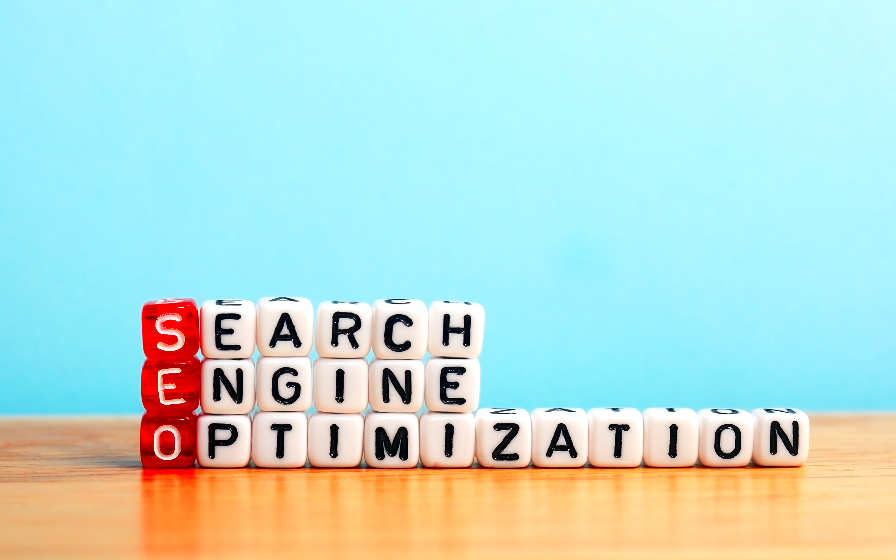Your Ultimate Guide to Search Engine Optimization in 2022
It’s the little things that count. Making an array of minor adjustments to your website can assist in achieving holistic improvement – relating to your site’s performance in organic search results, its overall online interface, and the users’ experience. The aim of Search Engine Optimization is to magnify visibility of your business’ website through search engines, organically. Essentially, it is making these previously mentioned improvements to score a higher-ranking search result and drive more traffic to your website as a result.
Here is your ultimate guide to SEO. In other words, the things you can do to achieve an improved and optimized website – to gain conversions, and in turn, clientele.
What does SEO involve?
Online search engines such as Google use automated software in the form of web crawlers to locate title tags, keywords, image tags, internal link structure and inbound or backlinks.
Another important term to note when discussing SEO is Search Engine Results Page, or more commonly referred to as SERPs. SERPs is used in reference to the position of your website on the search engine results page – your SERPs ranking on Google, for example.
On-Page SEO
On-page SEO refers to the optimizing of content, code, and all aspects of the website that you can control.
Off-Page SEO
On the other hand, off-page SEO is about taking the necessary action to build trust, authority and inbound links. It involves the actions that are taken outside of your own website, to optimize
Top Three Results
Almost 50% of online users click one of the top three results in the search engine results page. This exemplifies the importance of developing your website to be search engine optimized through on-page and off-page strategies. If you can rank within the top three positions of the first SERP, that is going to amount to a lot more clicks – and a lot more traffic directed to your website. Increased traffic = increased likelihood of accumulating leads and in turn, conversions – which essentially, is the ultimate goal.
Page Speed
How efficiently your website performs has a direct correlation to the rate of conversion your business will yield. The Google algorithm decides whether your website offers a positive experience to users and acts accordingly. Your website’s speed is an important factor to consider regarding Google’s algorithmic rankings.
In addition to this, users are impatient! They want results and information fast. A slow, lagging website will deter users and decrease your conversion results.
Benefits of SEO
- Positioning your brand within the market.
Strong SEO allows you to convey your brand positioning and brand story in an effective manner – on your terms. Your website is one of, or if not the best form of online media to communicate the value of your brand throughout the entire purchasing journey of the customer, alongside welcoming new intended audience members.
- Improving brand awareness.
Another key benefit of SEO. A search-engine-optimized website will assist in raising consumer awareness of your brand and enable you to convey your presence and professionalism within the market. Increased brand image and brand awareness can be achieved through a developed and search-engine-optimized website – which will contribute to brand recall and potentially help your brand reach that desired top-of-mind awareness (TOMA).
- Organic reach.
More organically driven traffic to website will aid the reach of your intended audience and bring you more customers. This an obvious, yet important aspect of SEO. As the main goal is to bring in more prospective clients through organic search and a higher ranking on the SERP.
Key Areas to Focus on – SEO Strategy
- Initial Setup
At the beginning of this stage, search engines such as Google need to locate your website on the internet. After crawling the web to identify and understand the contents of your page it can be displayed as a result on the search engine. However, any content that the search engine finds inaccessible, will simply not be shown as a search result.
This highlights the importance of a strong, technically focused setup, that ensures your pages can be effectively crawled by Google or any other search engine and displayed to the user accordingly.
- Information & Relevance
Having the appropriate information and content on your website is of the upmost importance when it comes to SEO.
The information included on your website contributes to your business’ visibility through search. How relevant your website’s content is will determine how highly you are ranked on the SERPs. Using keywords pertaining to your industry or particular product or service offering will assist in attracting the right consumers, due to having a higher-ranking position in terms of search engine results.
- Backlinks
Backlinks, also referred to as links, are responsible for how popular your website is. Backlinks are created when one website links to another. If another individual or organization mentions your site or its contents, you gain a backlink to your website from them. For example, these words link to Google, so they now have a backlink from us.
The topic relevance of a link carries more weight than others. Meaning if you are mentioned on a domain that specifically relates to the topic content found on your website, it will hold more authority as a backlink.
What’s next?
Now that you have a greater understanding of SEO, it is time to begin to develop your website to be search-engine-optimized. This insight into what is really involved in SEO, some of its benefits, and strategy-related areas to focus on will allow you to go forth and take the appropriate measures to improve the overall quality and visibility of your brand in an organic manner. It is all about creating organic reach and turning these accumulated leads into conversions.
Image Source: Shutterstock_294725729



